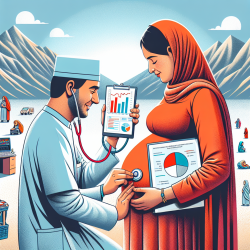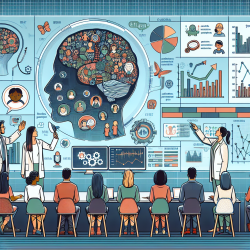Introduction
At TinyEYE, we are dedicated to creating exceptional outcomes for children through our online therapy services. Our commitment to data-driven decisions and evidence-based practices is unwavering. Today, we delve into a recent research article titled Development and validation of a health and nutrition module for the project-level Women's Empowerment in Agriculture Index (pro-WEAI+HN) by Heckert et al. (2023). This study offers valuable insights into how women's empowerment in health and nutrition can lead to better outcomes for themselves and their children. Let's explore how practitioners can leverage these findings to enhance their skills and encourage further research.
Understanding the Research
The study by Heckert et al. (2023) focuses on developing and validating a health and nutrition module (pro-WEAI+HN) to measure women's agency in health and nutrition. The research involved data collection from six agricultural development programs across Bangladesh, Burkina Faso, and Mali, with a pooled sample of 12,114 participants. The study employed psychometric analysis and the Alkire-Foster methodology to validate seven indicators covering various aspects of women's agency in health and nutrition.
Key Findings
- Seven indicators were identified, measuring women's agency in areas such as their own health and diet, health and diet during pregnancy, child's diet, breastfeeding and weaning, purchasing food and health products, and acquiring food and health products.
- Measurement invariance was confirmed across different contexts and samples, indicating that the indicators are robust and applicable in diverse settings.
- The study revealed that these indicators are distinct from the core pro-WEAI indicators, providing a more comprehensive understanding of women's empowerment in health and nutrition.
Implications for Practitioners
For practitioners working with children and families, the findings of this study offer several actionable insights:
- Holistic Assessment: Incorporate the pro-WEAI+HN indicators into your assessment protocols to gain a deeper understanding of the health and nutrition-related agency of women in your care. This can help identify areas where additional support or interventions may be needed.
- Targeted Interventions: Use the validated indicators to design targeted interventions that address specific areas of disempowerment. For example, if a woman has limited agency in making decisions about her child's diet, interventions can focus on empowering her in this area.
- Data-Driven Decisions: Leverage the robust data from the pro-WEAI+HN module to make informed decisions about program design and implementation. This ensures that interventions are based on evidence and are more likely to yield positive outcomes.
Encouraging Further Research
While the study by Heckert et al. (2023) provides valuable insights, it also highlights the need for further research in this area. Practitioners are encouraged to:
- Conduct Longitudinal Studies: Explore how the pro-WEAI+HN indicators perform over time and their impact on health and nutrition outcomes. Longitudinal studies can provide a more comprehensive understanding of the long-term effects of women's empowerment.
- Expand to Other Contexts: Test the validity of the pro-WEAI+HN indicators in different cultural and geographical contexts. This will help ensure that the indicators are applicable and relevant across diverse populations.
- Examine Specific Outcomes: Investigate the associations between the pro-WEAI+HN indicators and specific health and nutrition outcomes, such as dietary diversity and healthcare utilization. This can provide further evidence of the validity and utility of the indicators.
Conclusion
Empowering women in health and nutrition is crucial for improving outcomes for themselves and their children. The pro-WEAI+HN module developed by Heckert et al. (2023) offers a valuable tool for measuring women's agency in these areas. By incorporating these indicators into practice and encouraging further research, practitioners can contribute to the advancement of women's empowerment and the achievement of better health and nutrition outcomes.
To read the original research paper, please follow this link: Development and validation of a health and nutrition module for the project-level Women's Empowerment in Agriculture Index (pro-WEAI+HN).










